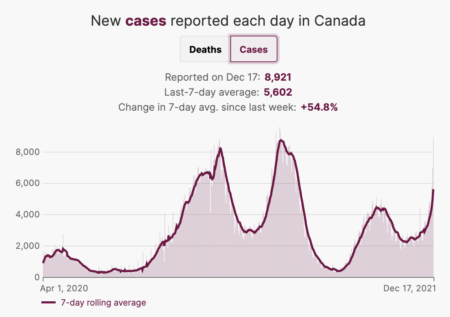
It’s a tough, strange time right now because of COVID.
Despite the predictable (and predicted) health consequences, governments are not willing to introduce restrictions which would help control this awful wave. They know that the politics of shutting down Christmas would be awful, both for enraged households that feel like they deserve for the pandemic to be over and for businesses that rely crucially on this period for profitability.
Then when it comes to adherence to the restrictions, almost everyone seems to see them as too onerous for themselves personally, given the ways they would prefer to spend their time. Everyone seems to have some nonsense rationalization about how someone else is doing worse things so their choices are fine, or that the omicron variant is nothing to worry about so we should let it spread. And so, inadequate policies become even more inadequate as implemented.
Having not travelled ‘home’ to Vancouver since 2010, I am used to lonely Christmases. I normally feel alienated from the population because their choices show that they prioritize their own entertainment and travel over protecting the Earth. That alienation is magnified this year, with people unwilling to even protect themselves.
I don’t know how we get away from a mindset where people feel such entitlement and lack of responsibility to others, but it’s one that is imperilling us on multiple fronts.

